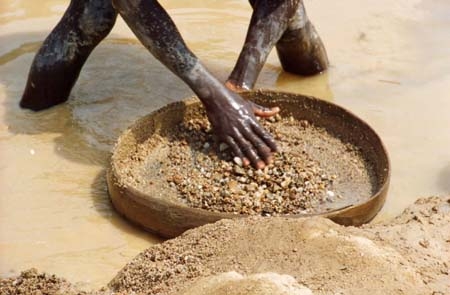European Union takes over role to combat conflict diamonds

On Friday, the European Union formally took over the chairmanship of the Kimberley Process and will spearhead the international initiative to combat the trade in conflict diamonds.
The process was launched in 2002 through the United Nations as a way of ensuring that diamonds were not being sold to finance violent movements around the world. Africa has especially been afflicted by the trade in conflict diamonds.
The 54 participants of the process represent 81 countries and account for 99.8% of the global production of rough diamonds.
In a statement, the EU made clear that its chairmanship of the process will focus on the principles of “sustainability, inclusiveness, responsibility and dialogue”.
Vice President of the European Commission, Federica Mogherini, commented on assuming the role:
"For the European Union, the Kimberley process is part of our work for sustainable development. It is part of our work for sustainable peace – to prevent new conflicts and cut the revenues of criminal and terrorist groups. It is part of our work for human rights – to make sure that diamonds produce wealth, not modern slavery. It has spread the idea that natural resources belong to communities, not militias”.
In addition, it will work on strengthening the process and making diamond production a sustainable livelihood for those involved. A series of events will be organised in Belgium throughout the union’s year-long chairmanship.
Ms. Mogherini added:
“The main strength of the Kimberley process has always been that it looks beyond governments, to civil society and to private sector. This is our main asset as we chart the way ahead. We look forward to working closely with all stakeholders in this coming year"
Image Credit: USAID
If you’d like to stay informed on the latest updates in aid and development, please sign up for the AIDF newsletter.















